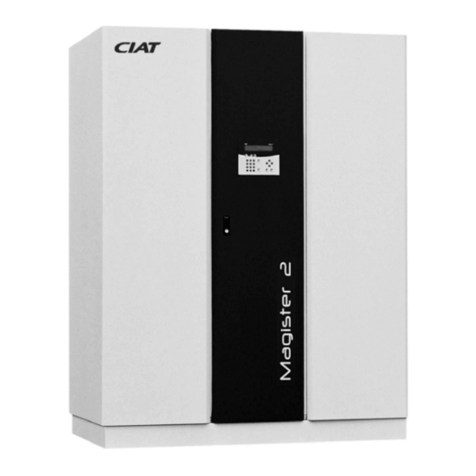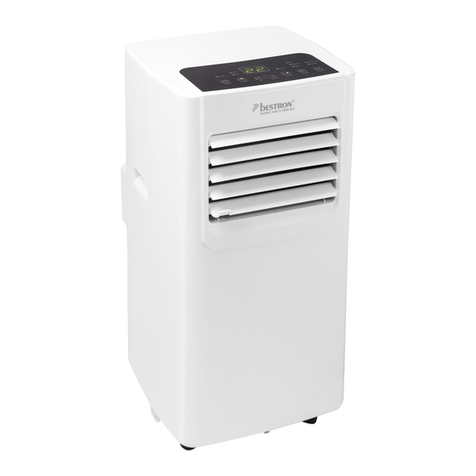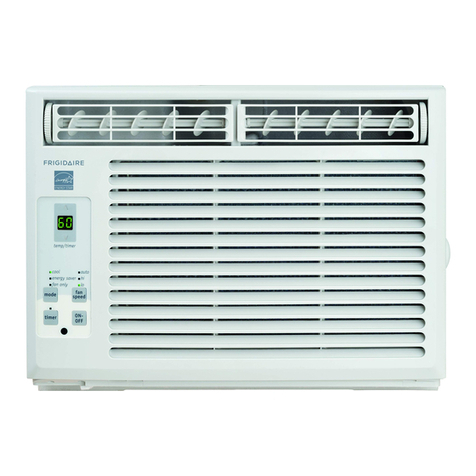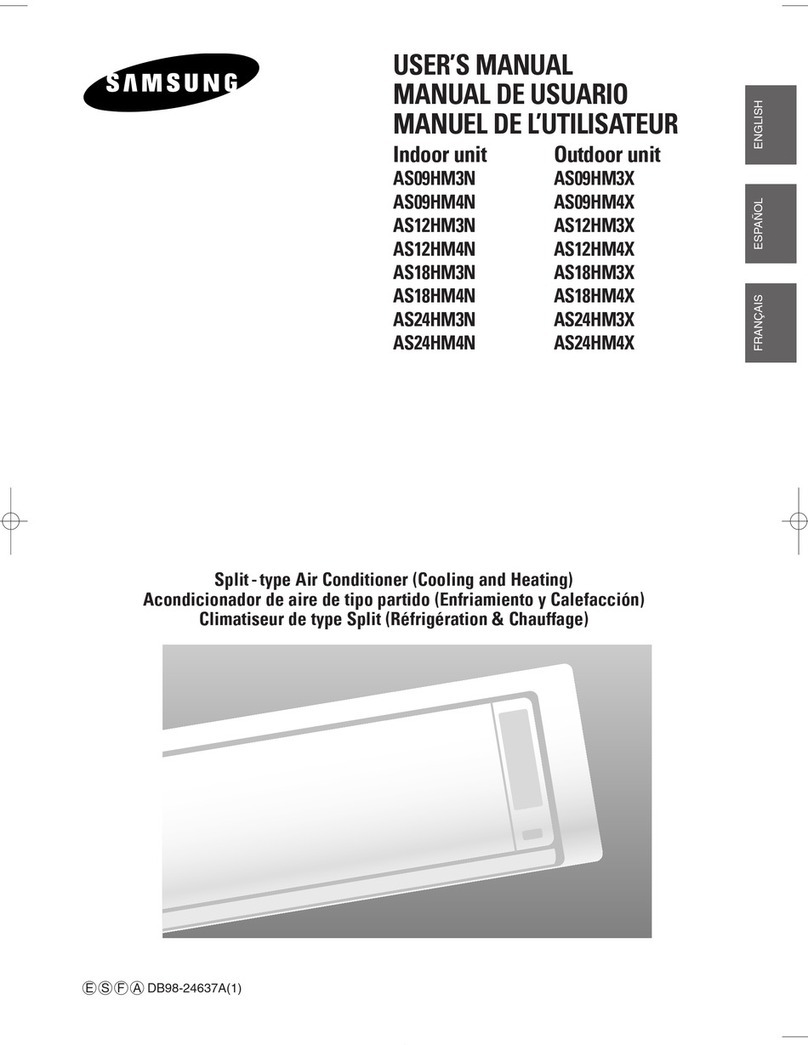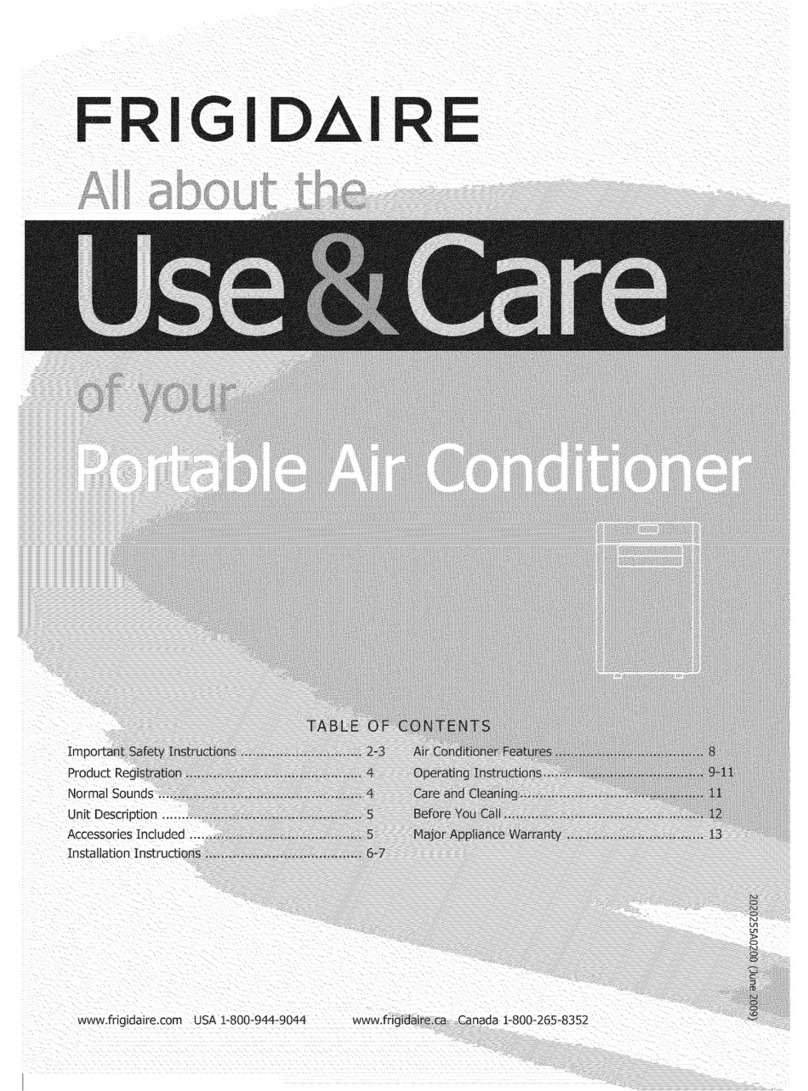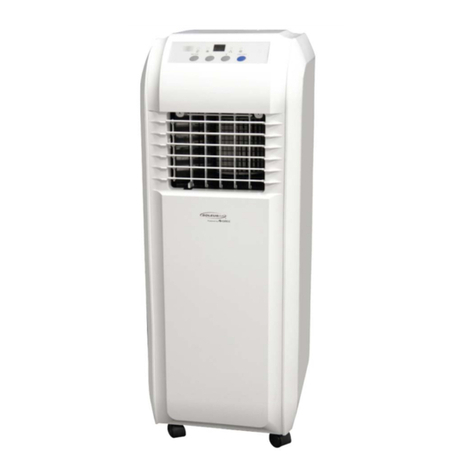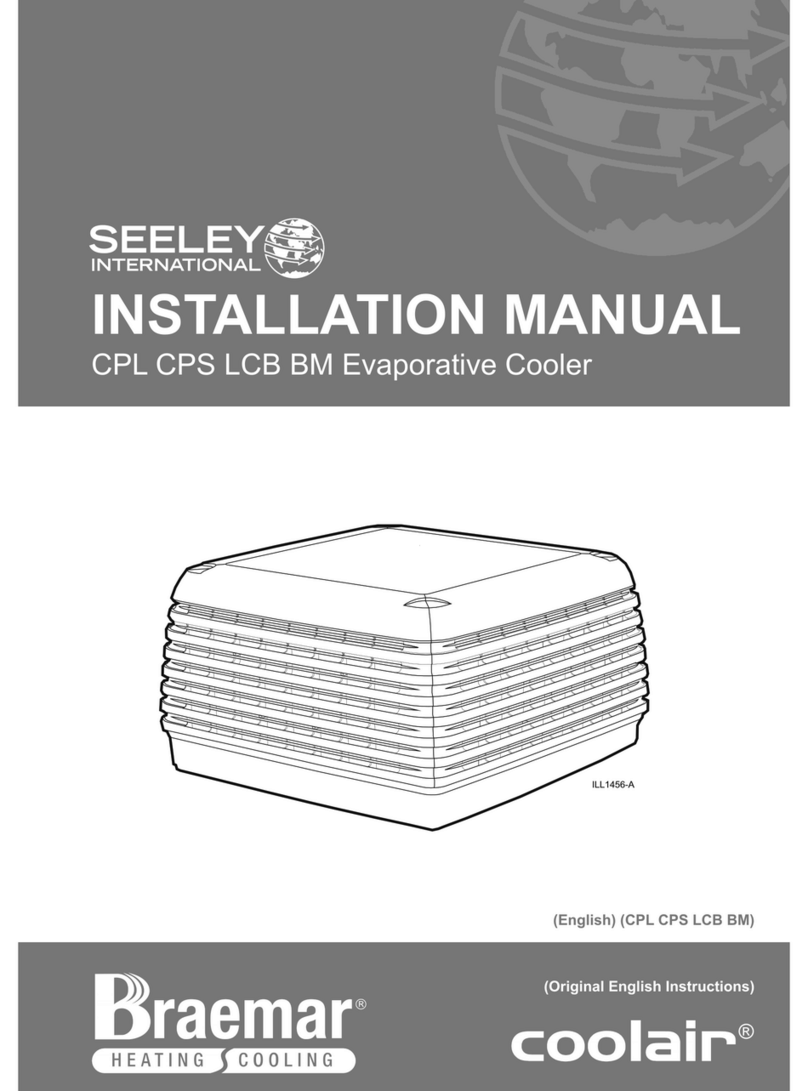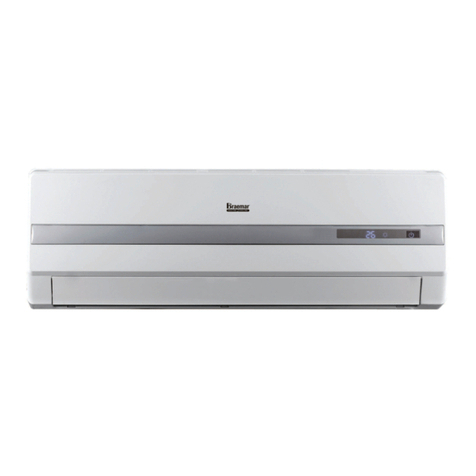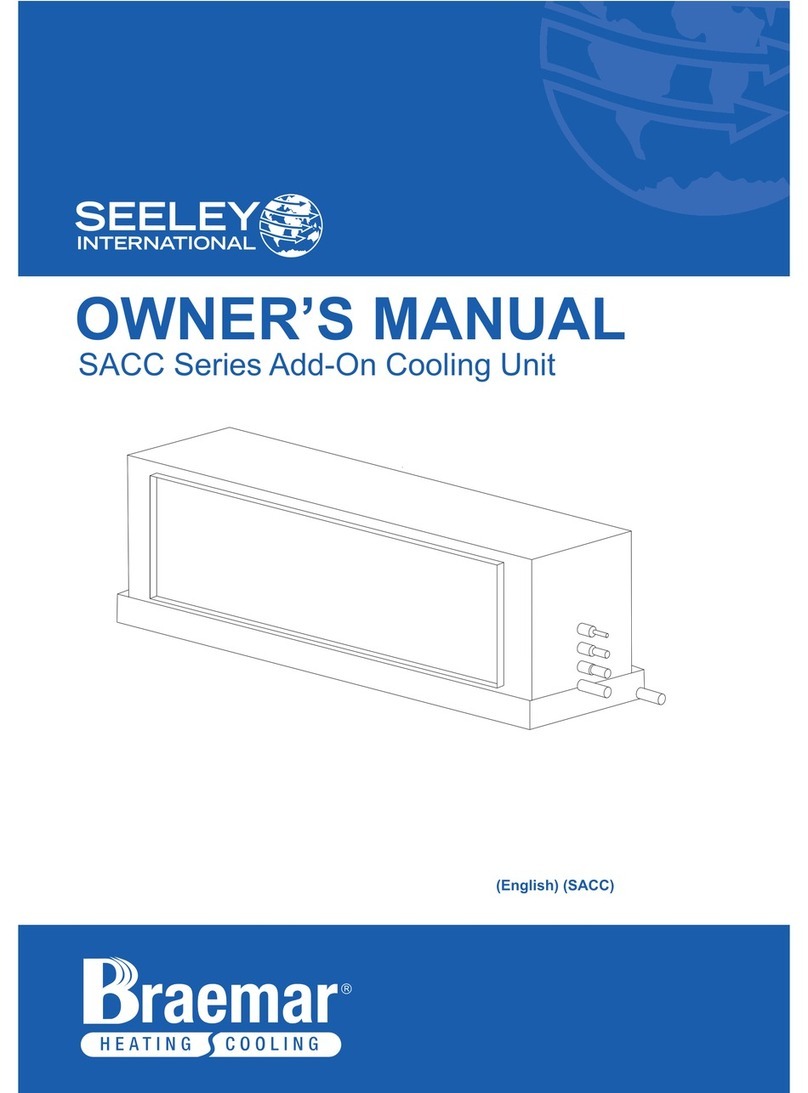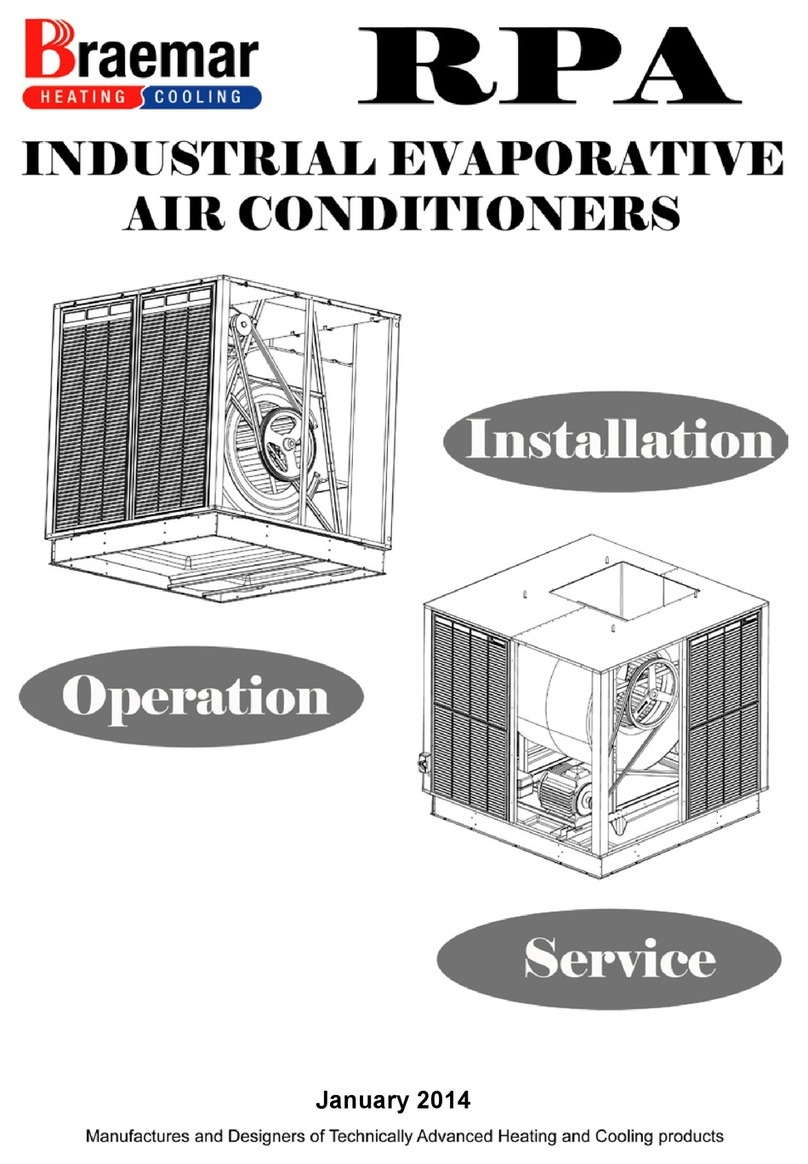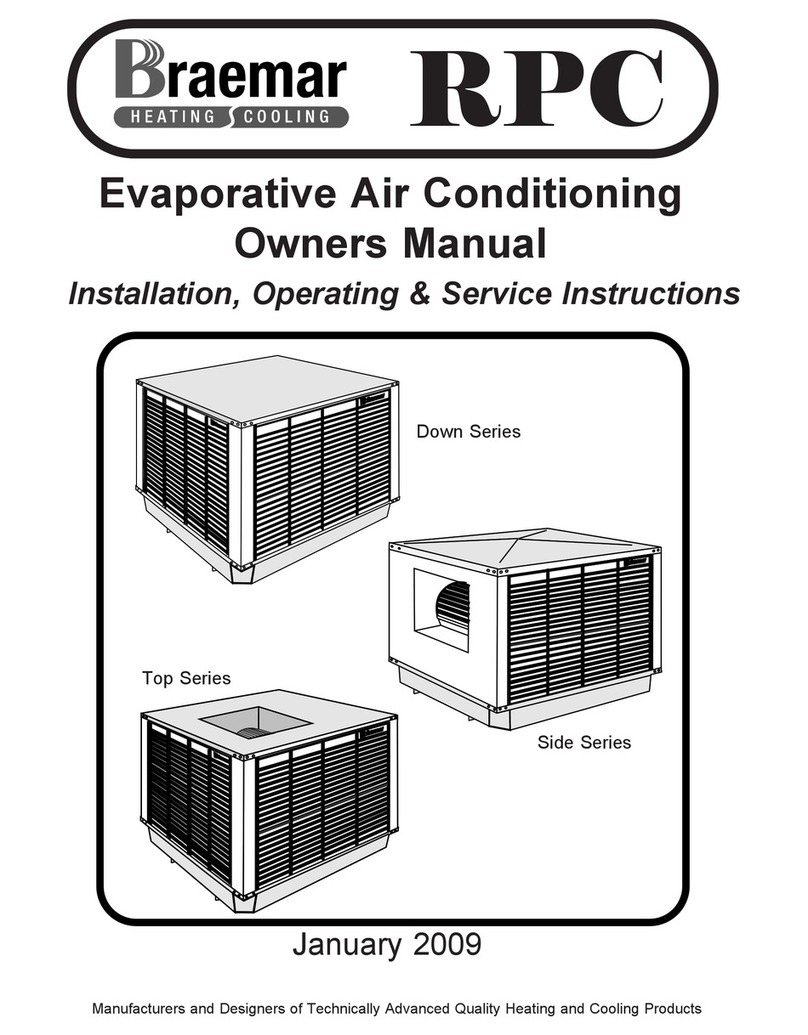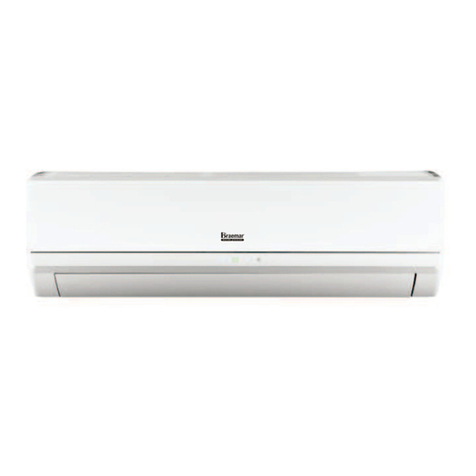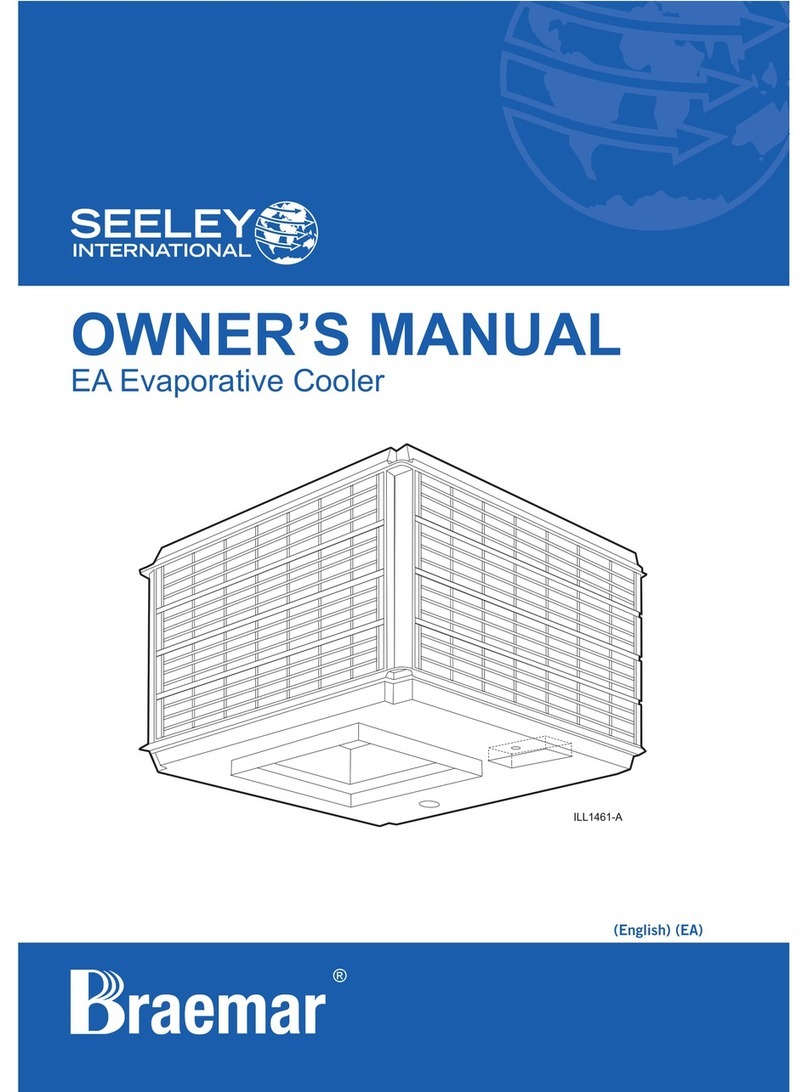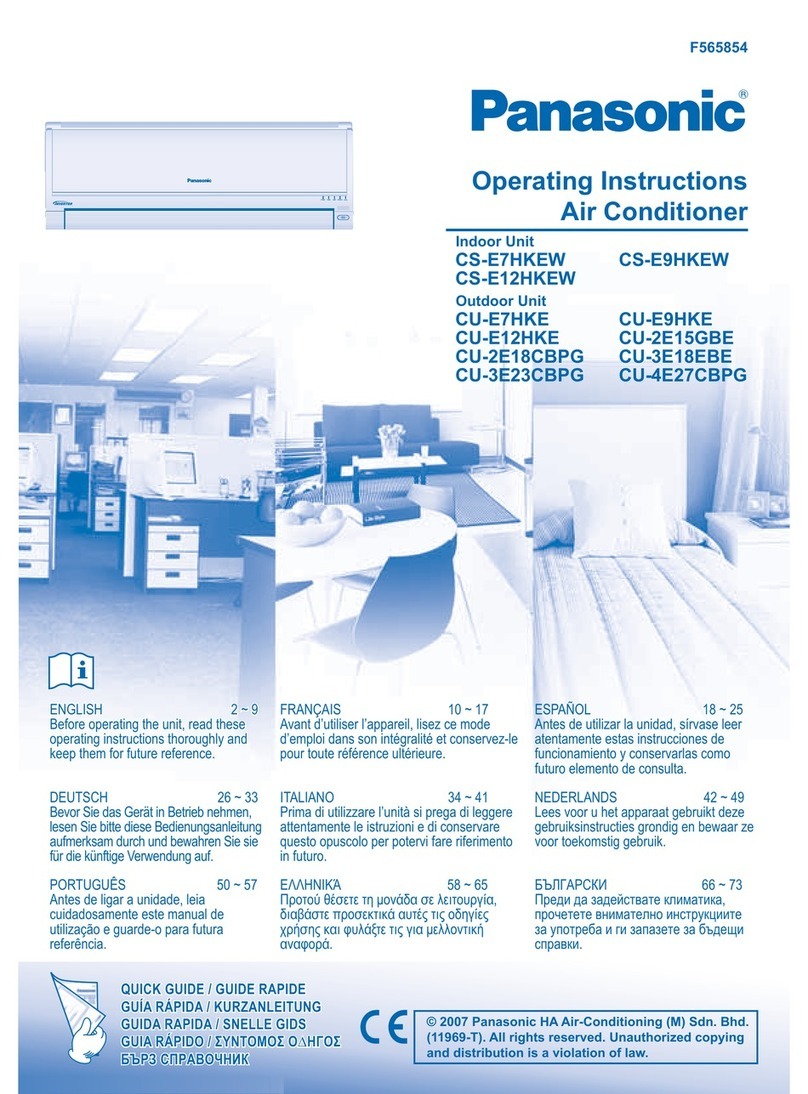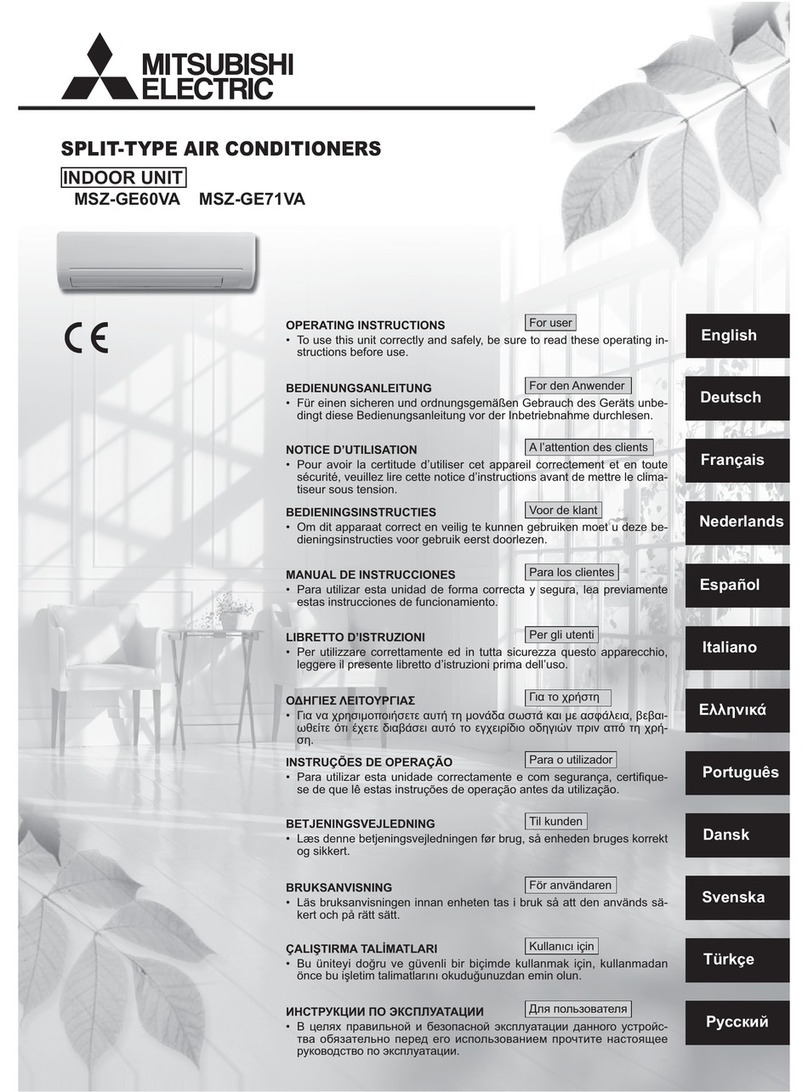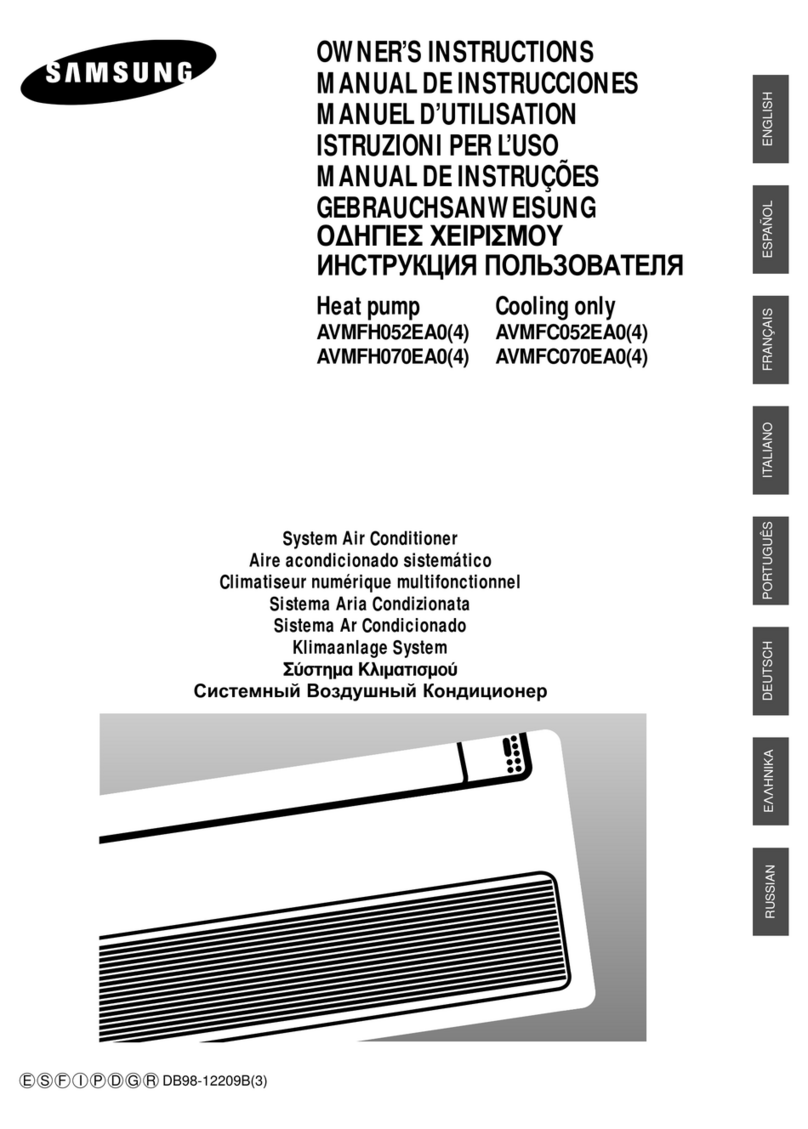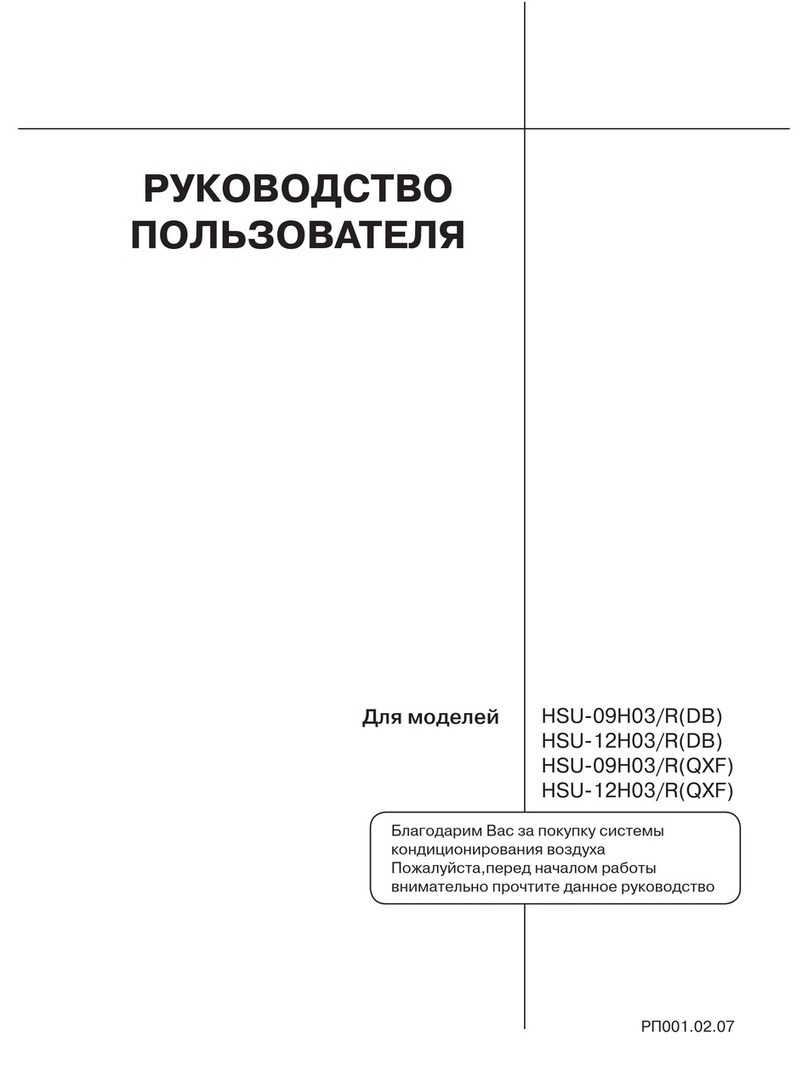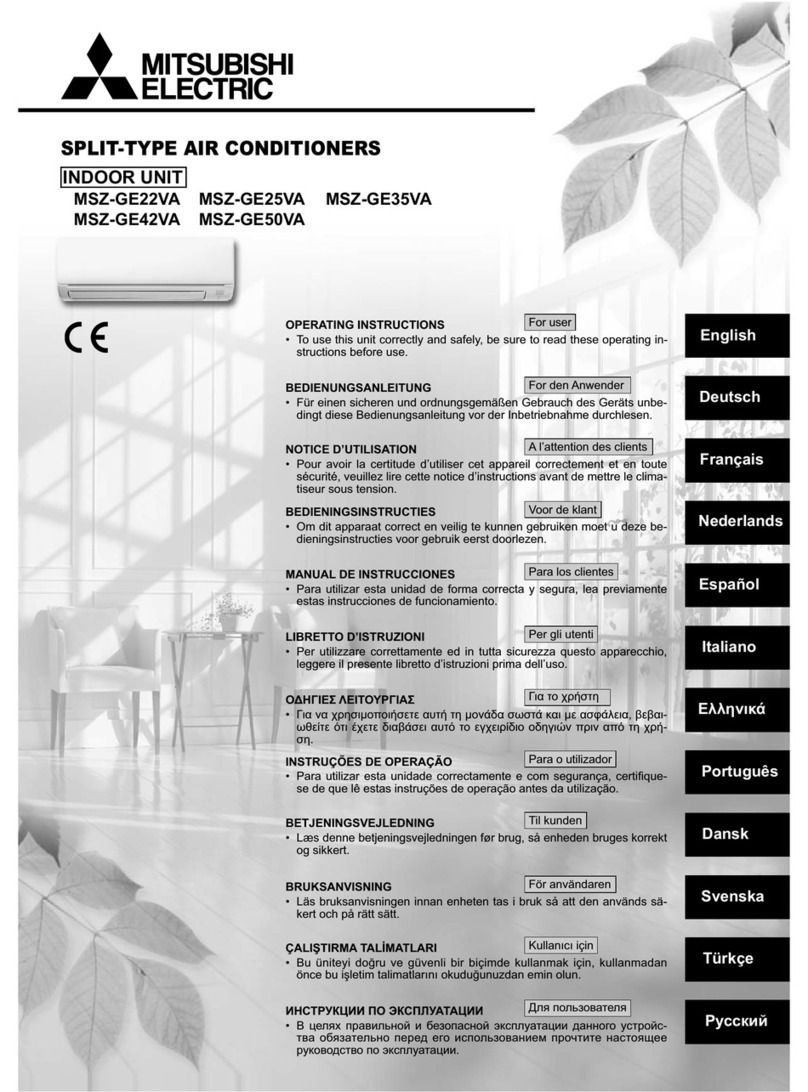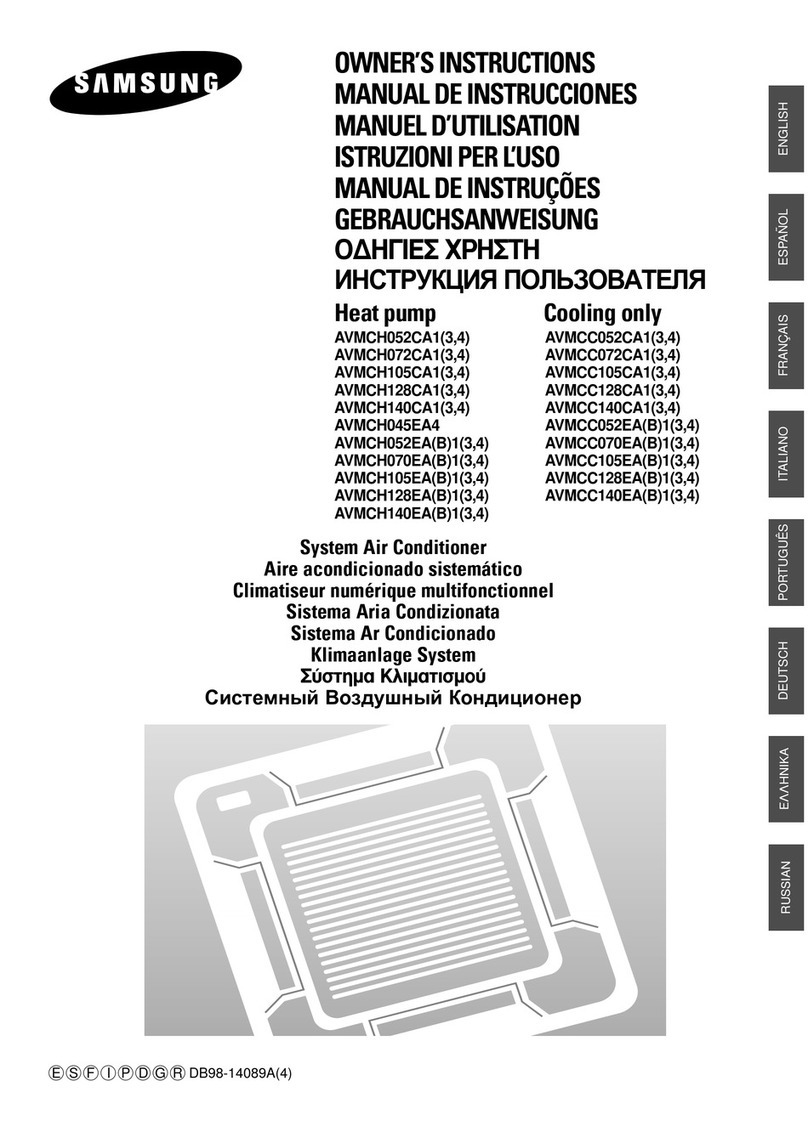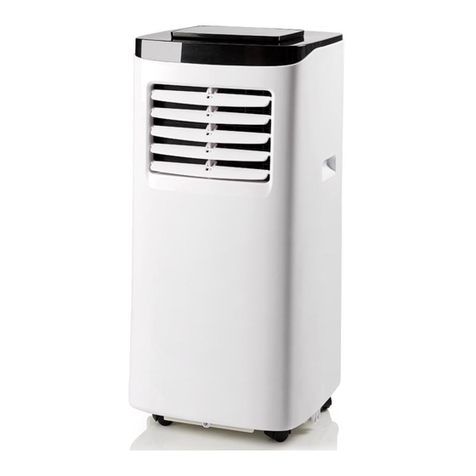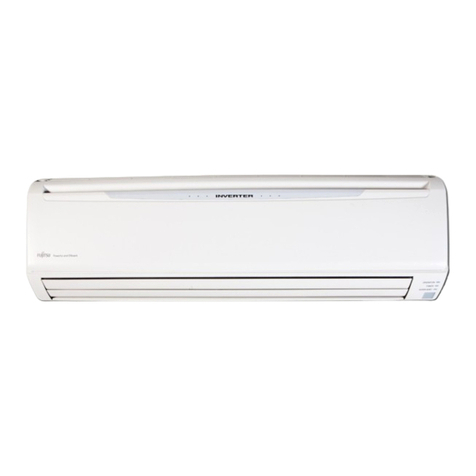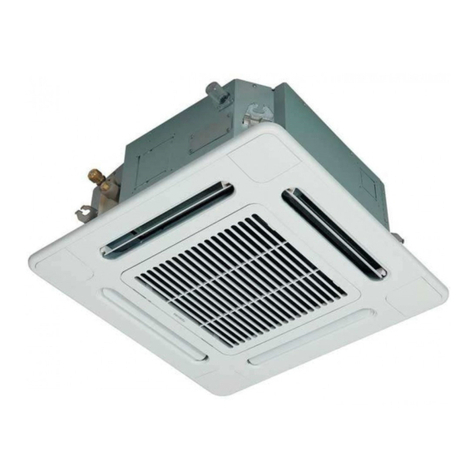1
Getting the Best Results
3
(11) Replace filter pad frames. Ensure they are the
correct way up.
(12) If water flow appears low, there may be a
problem with foreign material clogging the pump
or pump strainer. To correct, remove pump,
dismantle base, clean and reassemble.
Post-season Maintenance
overflow or overflow bleed funnel.
All units can benefit from routine preventative
maintenance. This may be required more
frequently if you are operating under harsh
conditions.
To perform Preventative Maintenance, follow the
instructions for ‘Pre-Season Maintenance’ at
regular intervals.
In some areas and for some commercial
installations local regulations have specific
requirements for the maintenance of evaporative
air conditioning systems.
Generally these involve regular cleaning and
maintenance at (3) monthly intervals or more
frequently if necessary.
Preventative Maintenance:
Check Your Local Regulations:
!
!
!
!
!
!
!
!
!
!
Turn off the power supply to the cooler.
Remove pad frames
Turn off the isolating switch inside the cooler.
Remove pad frames. Clean them by hosing them
with clean water, but do not use excess pressure
because you might create holes in the pad media.
Remove and clean the special water "spreader"
plates located under each edge of the top panel.
Do not disconnect from water hose. When
replacing them, check underneath to see that the
spreaders are correctly located in the notches
under the top panel.
Drain all the water form the cooler by removing
the Do NOT put
it back until next season. Do not lose the O-ring
seal.
Disconnect the water supply pipe from the tank.
Make sure no water is left in the float valve.
Clean the bottom tank thoroughly.
Replace pads frames.
Cover the cooler for winter if desired.
3
Maintenance
To ensure that your air conditioner continues to
provide reliable service for many years, it requires
some routine maintenance. There are two forms of
maintenance:
(1) pre and post season maintenance, and
(2) preventative maintenance.
(1) Turn off the water supply.
(2) Turn off the power supply.
(3) Remove the filter pad frames.
Insert a screwdriver into the slots at the bottom of the
pad frames and lever upwards. Pull the bottom of the
pad frames away from the unit, then lower the frames
out of the cabinet (Fig. 3).
(4) Turn off the isolating switch.
(5) Hose both sides of the filter pads CAREFULLY
. Ensure that the wood
wool pad material is evenly distributed, especially
make sure that there is no gaps or holes at the TOP of
PADS.
Pre-season Maintenance
Do not replace
this item until next season. Do not lose the "O"
ring seal.
(do
not use excess water pressure as this may create
"holes" in the pad material)
(6) Check and, if necessary, clean the water
spreaders located inside the roof above the filter
pads.
(7) Drain the water from the unit by removing the
overflow or overflow bleed funnel.
(8) Check pulleys for wear and correct alignment.
(9) Check "V" belt for wear.
(10) Thoroughly clean and dry the bottom of the
water tank.
“EA”
